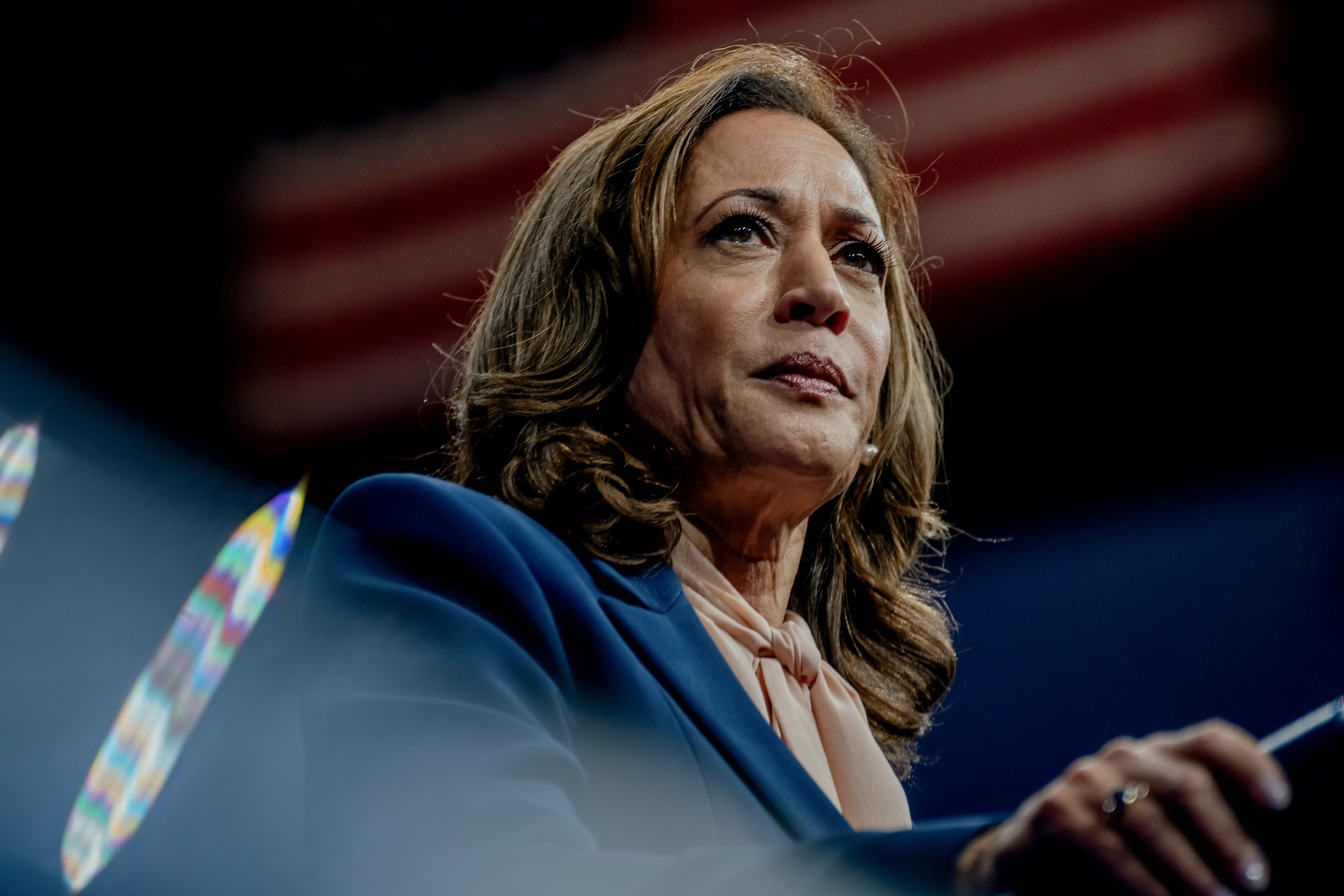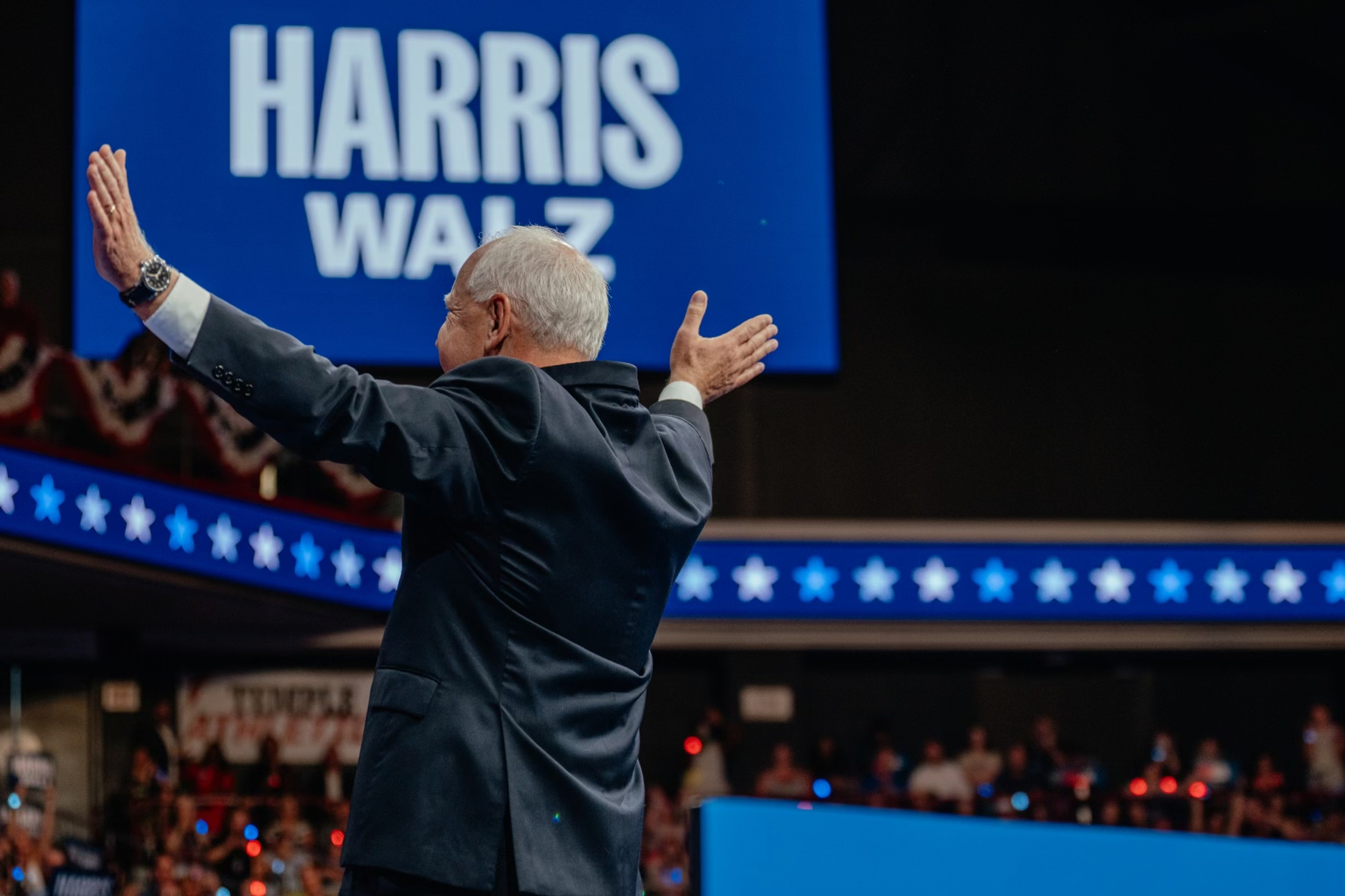Harris Chooses Comfort Food: Will America Bite?

PHILADELPHIA — Vice President Kamala Harris’ debut appearance with her running mate and his runner-up here Tuesday night neatly illustrated the reasoning behind her choice.
Contrary to the wish-casting of the left and the sinister claims of the right, Harris didn’t select Gov. Tim Walz of Minnesota because she is beholden to her party’s base or, more absurdly, uneasy with a Jewish vice president. She picked Walz because she had chemistry with him as a generational peer and saw him as somebody who could be an effective advocate without threatening to overshadow her.
When Gov. Josh Shapiro of Pennsylvania, the bridesmaid in his own city, delivered a fiery stem-winder near the start of the evening, and then Walz concluded it with a folksy introduction of himself and a Minnesota not-so-nice takedown of the GOP ticket, Harris’ assessment seemed vindicated.
Whether her comfort-food pick will prove not merely a better fit for her personally, but a winning one, remains to be seen.
However, the most significant moment yet in Harris’ overnight candidacy included signs that she knows she must broaden her appeal to prevail in November.

After spending her career in liberal California, running in the 2020 Democratic primaries and appearing before mostly liberal constituencies as vice president, Harris is suddenly being made to devise a general election message for an audience she has not much considered outside the three months she was on the Covid-cloistered 2020 ticket.
How will she run? Will she practice the sort of defensive politics Bill Clinton and Barack Obama mastered, in their own way and in different decades, to reassure middle America they were no radicals? Or will she adopt a new, fit-for-Trumpian-times model of simply rousing core supporters and betting contempt for opposition will carry the day?
She did both on Tuesday and, before a partisan audience, it was not surprising that the red meat drew the loudest applause. Yet for a candidate knocked for being captive to prepared remarks — and she’s still yet to speak extemporaneously for any length since President Joe Biden withdrew from the race — her most effective moment may have been when she deviated slightly from script.
It was when she hailed “the promise of America,” recounting how “two middle-class kids” from very different places, Oakland, California, and the heartland, could perhaps get to the White House together.
“Only in America,” she said, repeating herself. Then, as if in the pulpit, she said it three more times: “Only in America.” The crowd, perhaps inspired by the Olympics, got the cue and began chanting “U-S-A!”
It was the stuff of Republican nightmares.

Harris followed with what may be rhetorical boilerplate for many candidates but which seemed more notable for one still defining herself and her message. She vowed to pursue voters of every stripe in Obama-like fashion — “from red states to blue states” — but then broadened her appeal rather than narrowing it to specific affinity groups.
“We are running a campaign on behalf of all Americans, and when elected, we will govern on behalf of all Americans,” Harris said.
It was not exactly a rebuke of her party’s identity fixation, but it was a beckoning to something broader.
As was, in a smaller way, her repeatedly calling her running mate “Coach.” After all, there are few unifying American institutions left beside football.
Walz, too, sent unsubtle signals of reassurance.
He may not have been wearing his sergeant’s chevrons or bearing a coach’s whistle over his neck, but his remarks made clear he intends to run on his biography and regular-bloke style and not his progressive legacy in St. Paul. He held up his GI Bill and public school credentials, salted his comments with a bit of “damn” and “hell” and portrayed the opposition as the country club and the sell-out.
Walz’s couch line, referring to a false internet rumor about JD Vance, will get the attention — I think it was beneath him — but the sharper cut was when he assailed his GOP rival as an Ivy Leaguer floated by rich guys who then “wrote a best-seller trashing” his own rural roots. “Come on,” Walz demanded in the fashion of somebody raised in Butte, Nebraska.
Recounting his own career, Walz emphasized his bipartisan work on issues like veterans and agriculture, same as he did in the introductory video the campaign unveiled earlier in the day.
The two were clearly taken, perhaps overwhelmed, by the rapturous response. Walz surely didn’t mean to knock Biden when, upon taking the microphone, the Minnesotan praised Harris for “bringing back the joy,” but he didn’t have to expound either.
It wasn’t surprising to see them together. At a meeting of the Democratic Governors Association last December, I told Walz that if Harris was the Democratic nominee in 2028, he or Gov. Andy Beshear of Kentucky would be her most logical running mates. (He didn’t disagree and, in fact, mentioned some of his credentials that could complement such a ticket.)
What’s surprising, of course, is that they forged a partnership now.
It nearly didn’t happen. They overlapped two years in Congress but didn’t know each other. And Walz was struck by, and slightly irritated about, how little effort the vice president’s office made to cultivate the governors at the outset of Biden’s administration. That changed, though, when Harris made a handful of trips to Minnesota and she and Walz finally got to know each other.
Few in the Democratic Party were happier to see the ticket talking about love of country, military service and veterans’ care than Gov. Wes Moore of Maryland, who since his 2022 campaign has been urging his party to reclaim the flag.
“He’s a person who won’t be lectured on patriotism,” Moore told me after watching a command sergeant major, the essential cohesive force in any military unit, take the stage.
Moore, though, wants more. He thinks Harris should drape her nominating convention later this month, literally and metaphorically, with the stars and stripes.

“This needs to be framed as a celebration of America,” Moore said of the Chicago conclave, urging Harris and Walz “to be unapologetic in speaking about their love of country.”
That means “flaws and all,” he added, because “loving your country doesn’t mean lying about it.”
It means conveying to voters, as Harris did Tuesday, that what makes America great is the possibility it affords so many, no matter their circumstances. But she must also demonstrate what the country means to her — and that she shares the values that transcend America’s differences.
Obama is the obvious model for Harris, and Trump’s attacks make her inoculation even more essential.
The former president’s call for unity in his keynote speech at the Democratic convention 20 years ago this summer that marked his national debut is well-remembered. What’s less so is the first ad he aired at the outset of the 2008 general election, when Obama was eager to define himself before the Republicans could do it to him.
Invoking his values, the then-candidate looked at the camera and concluded the commercial with this assurance: “If I have the honor of taking the oath of office as president, it will be with a deep and abiding faith in the country I love.”



